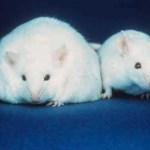Biomedical
Today's science news from the Weizmann Institute covers research in neurobiology, environmental science and cancer immunology.
⢠In the first, scientists identified a likely biological marker for autism that shows up even in very young children. Diagnoses of autism are generally not possible so early, as the signs typically appear gradually throughout the first 3-4 years of life. The scientists used fMRI to scan the brains of children aged 1-3 who were just starting to show signs of autistic behavior. Their method: scanning the brains of toddlers while they sleep. It seems that even asleep…
This week's Weizmann news stories: A "steam release valve" for inflammation, a "brake" for cell division and an "amplifier" for quantum signals.
The steam release valve mechanism also involves an amplifier - one that ramps up the inflammation signal in response to viral attack on a cell. When the signal reaches its peak, it trips a nearby protein called caspase-8, which then kills the amps, damping the signal back down. The scientists think that failures in this mechanism could be behind various inflammatory diseases.
The brake on cell division turns out to be our old friend p53. Thirty…
New research at the Institute sheds some light on a protein that could make it harder for overweight people to stick to a diet.
That protein helps regulate the effects of leptin - a hormone that reduces appetite and increases physical activity. People missing the leptin gene are invariably obese. It turns out, however, that this mutation is extremely rare; in fact, most chronically overweight people have too much leptin rather than too little. This happens because the body develops resistance to the hormone, so it amps up the signal, trying to be heard. It's also an indication that simply…
Three news items were posted on our site today. The first is on two papers by a group in Spain. Normally we don't publicize papers that are not written by Institute scientists, but these are a special case. They appear to have clinched the claims of a Weizmann scientist that one can treat stroke and head trauma without trying to get drugs into the brain. The treatment would consist of upping the levels of a naturally-occurring enzyme in the blood; one of these papers showed that levels of this enzyme in the blood tests of stroke patients were the best predictor of their chances of recovery.…
Two recent papers to come out of the Weizmann Institute have possible medical applications -- one in preventing pregnancy, the other in preventing the deadly effects of nerve gas.
The first might give pause to those among us who are "believers" in antioxidants. It seems that those "nasty" molecules they eliminate -- reactive oxygen species -- have a positive role to play, at least when it comes to fertility. In the study, mopping up reactive oxygen species with antioxidants in mouse ovaries blocked ovulation. So while women who are trying to get pregnant might consider knocking off the acai…
